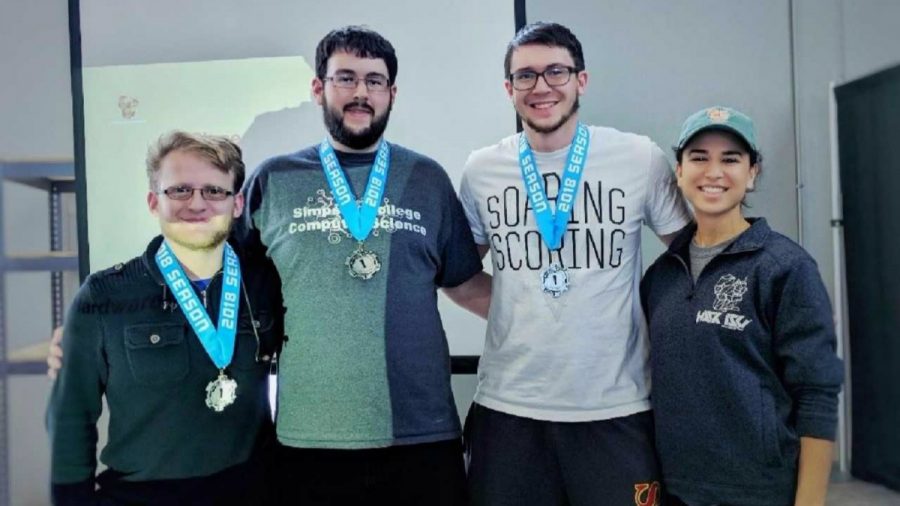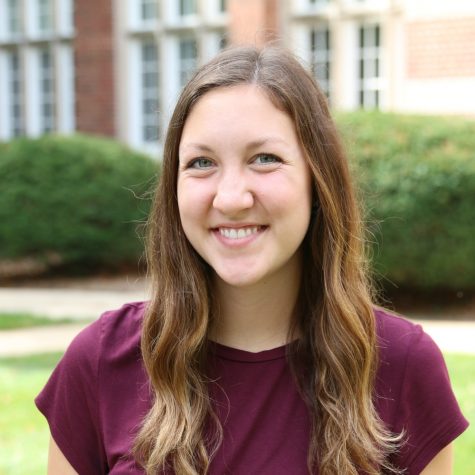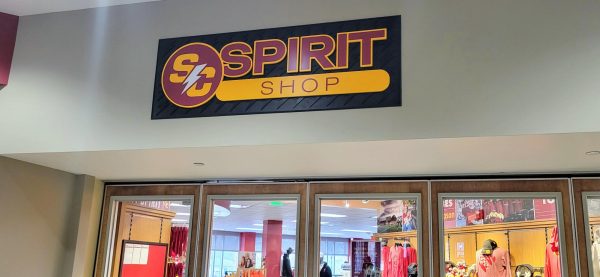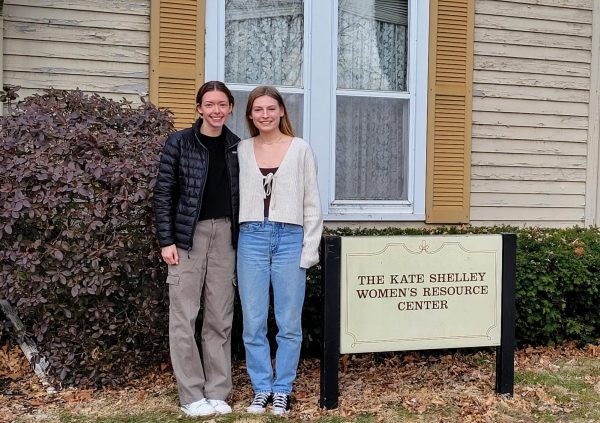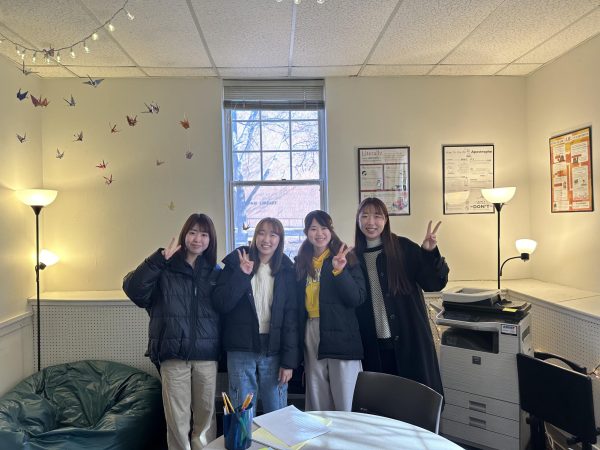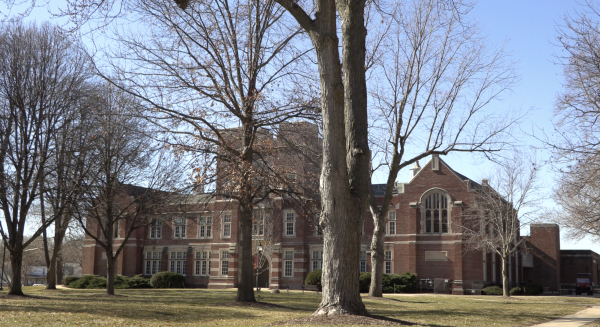Taking programming to a new level: Simpson wins hackathon
October 25, 2017
INDIANOLA, Iowa — A Simpson team beat out 76 others, including teams from Iowa State University and Drake University. This was no sports team but rather the Computer Science Club.
Three members from the Computer Science Club — senior Nathaniel Hayes, senior Chris Colahan and sophomore Josh Dietrich — traveled to Iowa State last weekend to compete at the annual HackISU Midwest Hackathon.
A hackathon is an event where teams gather with a limited amount of time and collaborates to bring an idea to life using computer programming.
“We had 36 hours, so we only slept around four hours during that time,” Hayes said. “There’s a competitive edge to using your time to build rather than sleep.”
Competitors can only code on the premises, so the time limit meant preparation before the weekend. Colahan said the team had meetings to brainstorm ideas a week or two before the competition.
“The more time you spend before this planning and deciding exactly what you’re going to do, who’s going to do it and how it’s going to work, the less time you have to spend in deliberation while you’re there,” Hayes said. “You can just jump in and go.”
Simpson has competed at the HackISU competition twice before last week’s hackathon, Hayes said.
Their prize invention? A smart trash can.
“The device tracks how full the cavity of the can is in real time, and it’s meant for large organizations with lots of trash cans or parks and campuses with trash cans spread across a large distance,” Hayes said.
When the trash can passes a threshold for “fullness,” it will send the assigned custodian a text notifying them to empty the trash.
This past weekend was Hayes’ fifth hackathon, Colahan’s fourth and Dietrich’s first. The team had never won first place until then.
“We’ve always hovered around third place, fourth place,” Hayes said. “We’ve won side awards. This is the first time we’ve ever smack-dab won the competition.”
Last month, Hayes and Colahan participated in a hackathon at the University of Iowa. They won fourth place and their invention, which made it easier to take notes during meetings, was named “Most Commercially Viable Product.”
Simpson teams have also competed at schools in St. Louis and Chicago, Hayes said. They were even invited to a competition in Washington, D.C.
“You have to submit resumes and talk about previous projects you’ve done, so these are actually quite exclusive,” Hayes said. “It’s not looking like it’s going to happen, though, because of funding. You don’t have a lot of sleep, so driving isn’t really an option.”
The team will continue to compete in the Midwest when they can. As for selling their new idea, they don’t have the time.
“Taking it from looking really good and doing the basics of what you need, to making it work all the time and have everything implemented takes a lot more time,” Dietrich said.
Competitors have 36 hours to make a prototype, but it takes at least four months to make it a viable product, Colahan said.
“As college students especially, we don’t have that time,” Dietrich said. “So it gets put on the back burner and fades out.”
The team would like to compete as much as they can, though, and said they need more people who are interested to join.
“The hardest part (is) when you’re trying to recruit people onto this. You can hook them with the idea that we make cool things,” Hayes said. “We win cool prizes. But when they get there, they don’t realize how incredibly brutal trying to stay up, working on one thing for such a long period of time is.”
Since Colahan and Hayes are both seniors, Hayes said if Simpson wants to continue competing at hackathons, they need to recruit more underclassmen.
If interested in joining, contact Hayes at [email protected].



